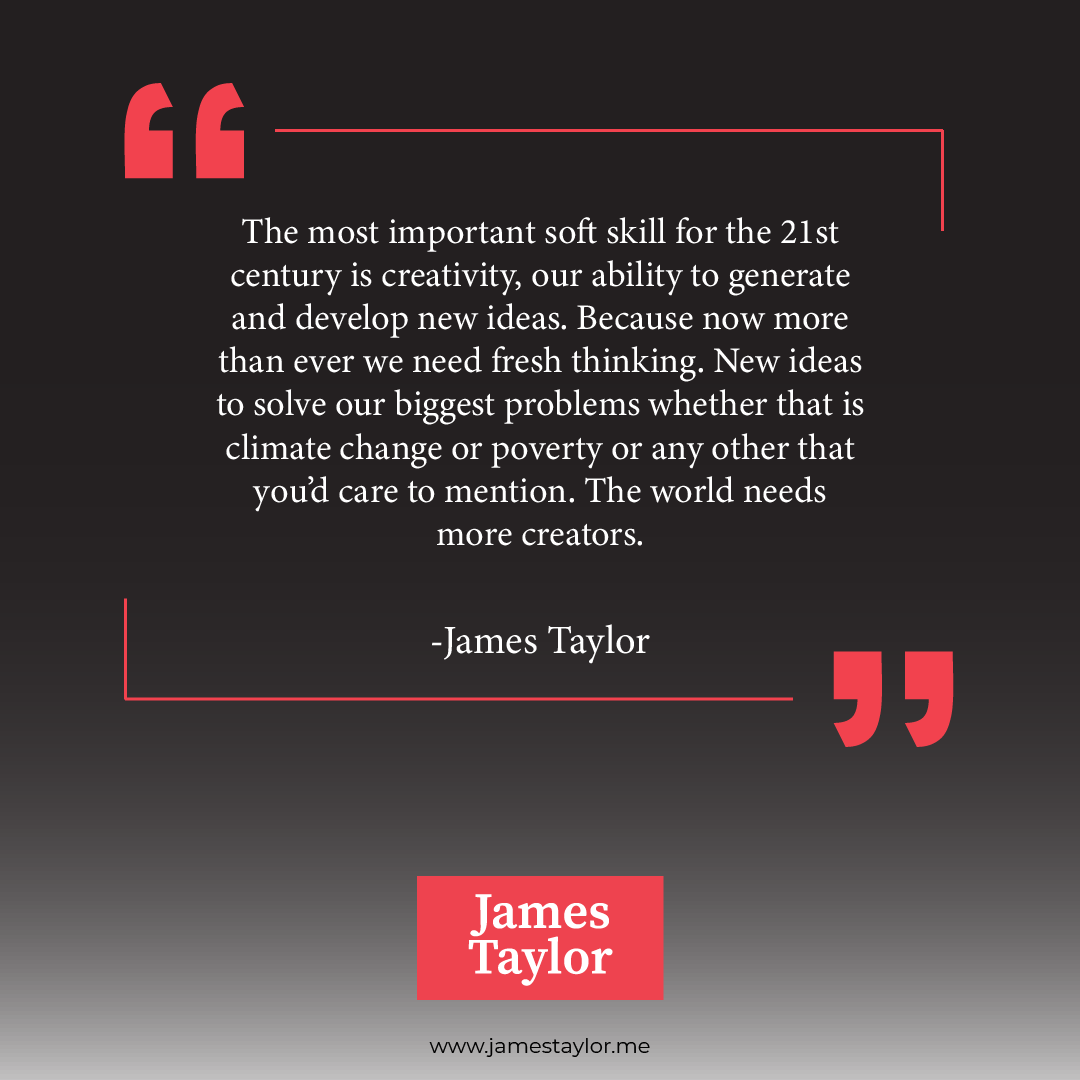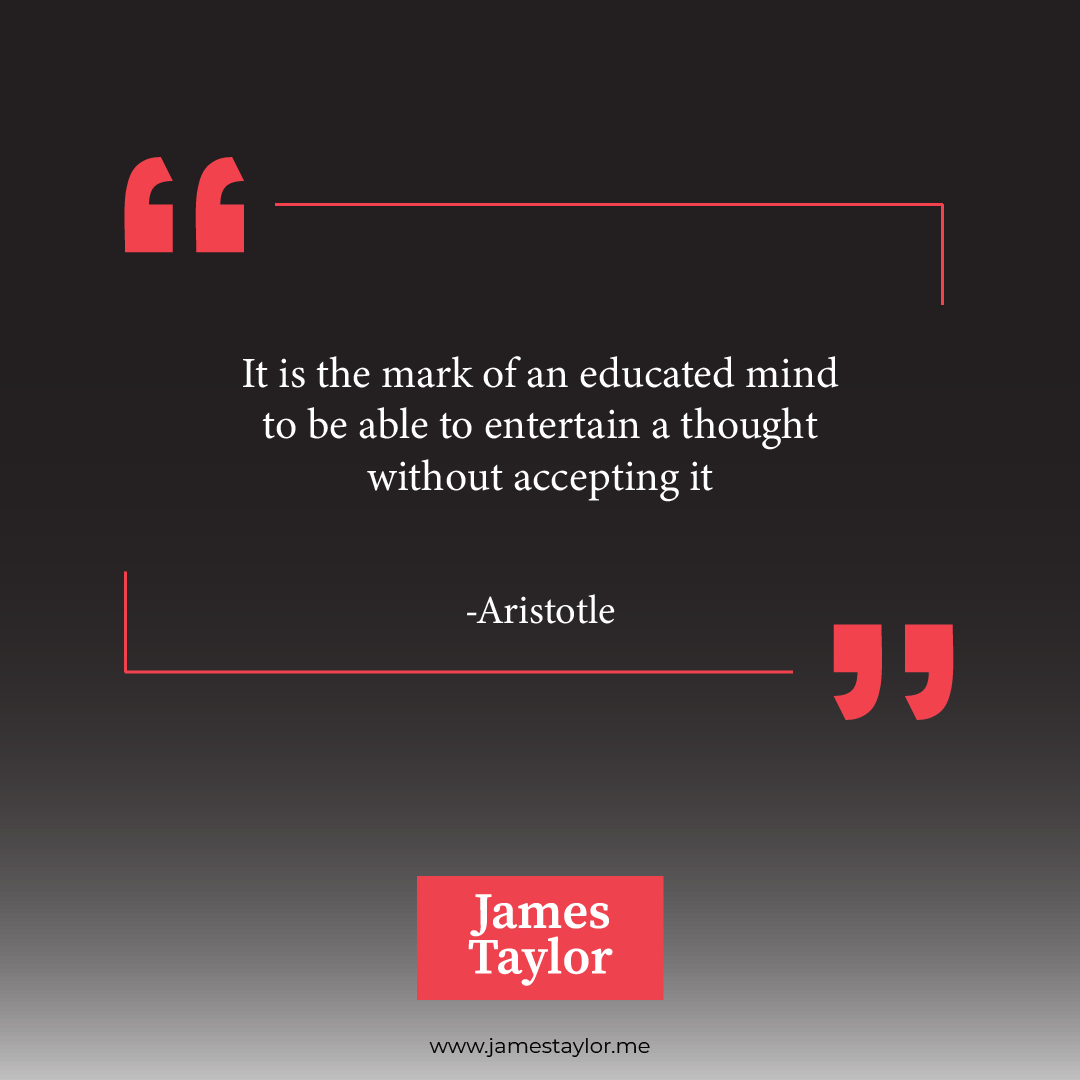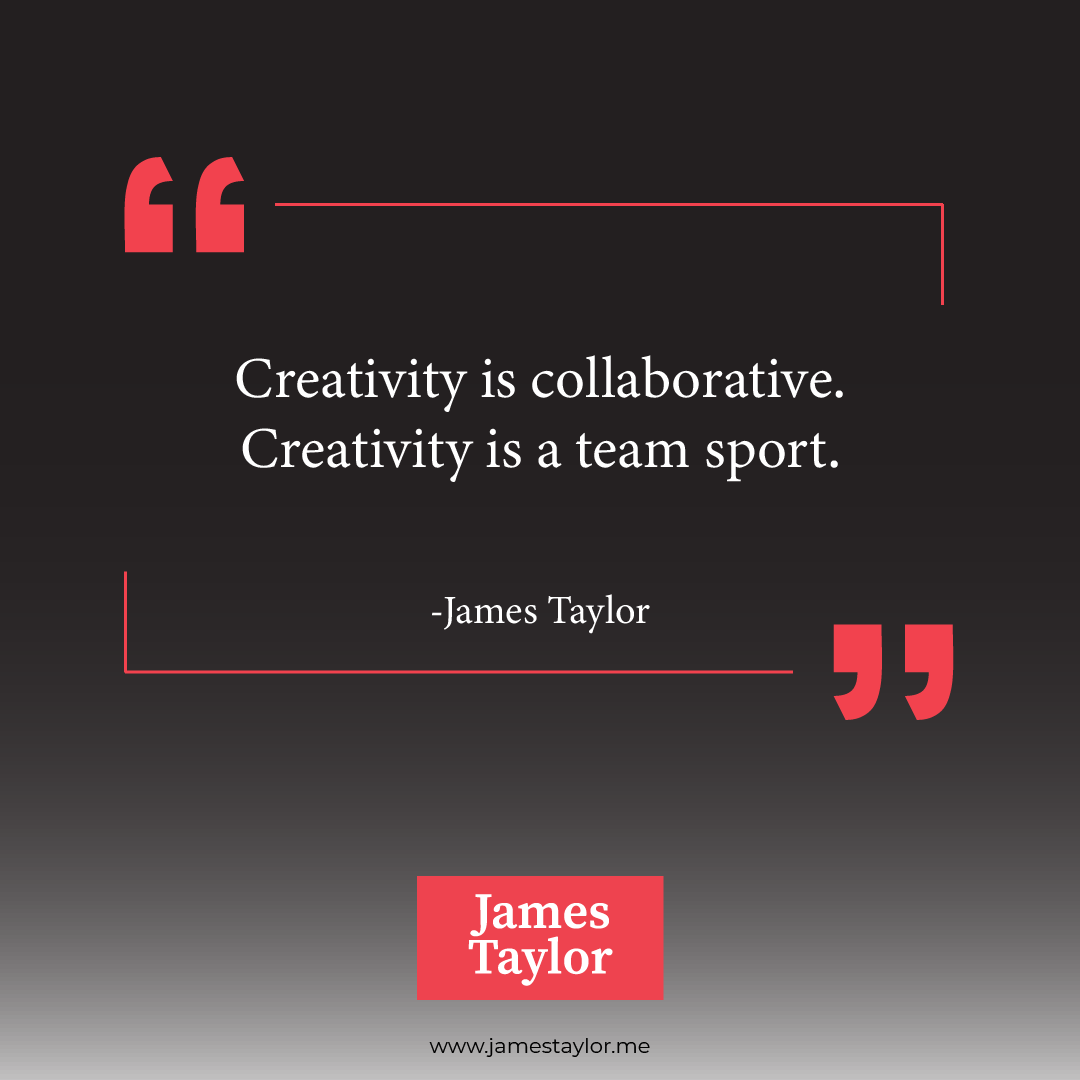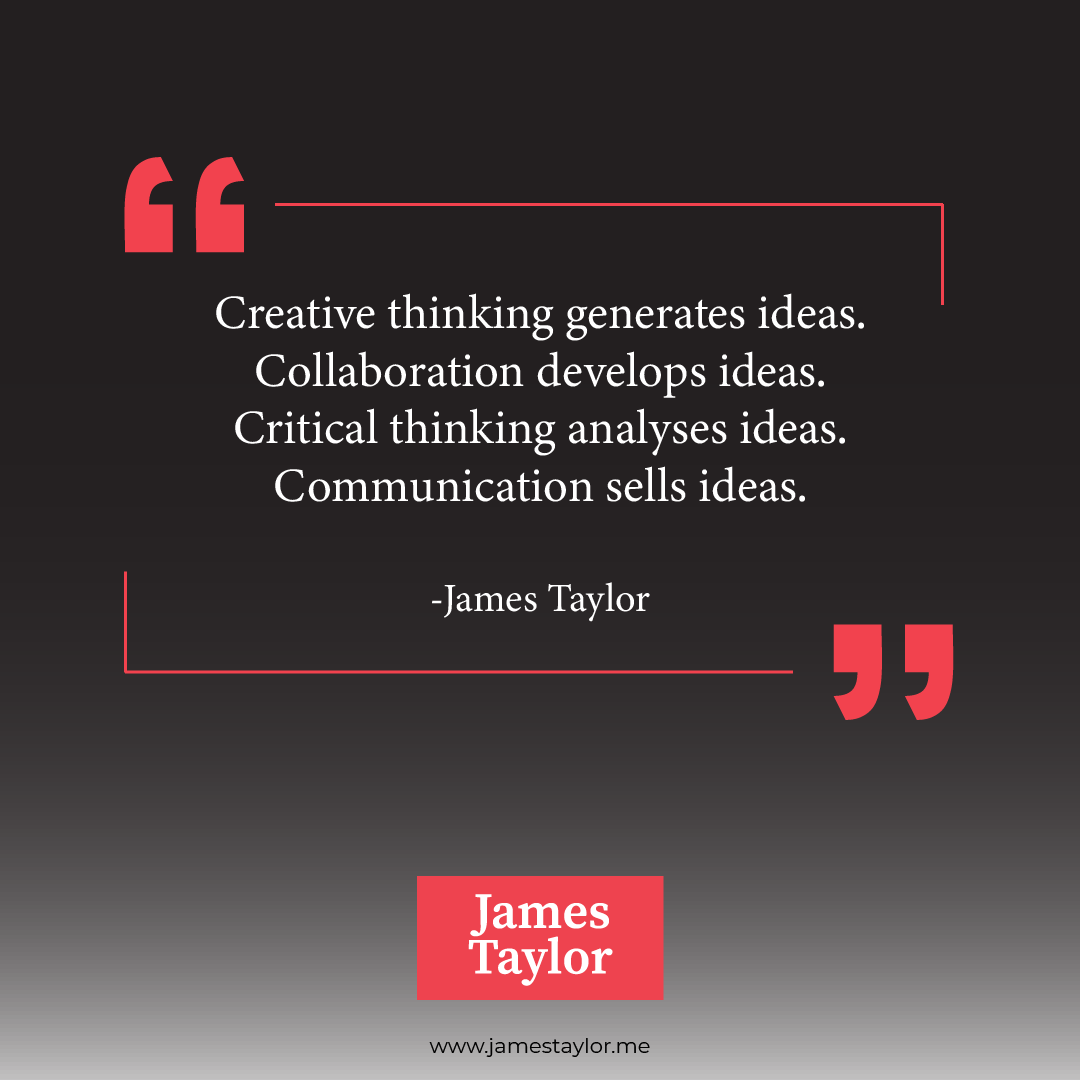LISTEN TO THE PODCAST
The 4 Skills Shaping The Future Of Work (And How To Develop Them)
- Communication
- Critical Thinking
- Collaboration
- Creativity
What skills should we be developing in order to survive and thrive this age of technological disruption? Which of our human abilities do we need to strengthen to best adapt to all the changes we are seeing in our work and personal lives?
Enjoy access to my free Creativity Blueprint training course where I help you unlock your creative potential, break down creative blocks and unleash your creative genius. Click here to gain access.
INSPIRATIONAL QUOTES

FULL TRANSCRIPT
The 4 Skills Shaping The Future Of Work And How To Develop Them
Hi, it’s James Taylor here, innovation keynote speaker and creativity expert. Technologies like artificial intelligence, robotics and automation are replacing many jobs and transforming how we live and work. So what are those essential soft skills to develop in order to stay relevant and agile as we fast-forward into this new future?
You see the pace of change we are all experiencing just now is only going to accelerate. Regardless if you’re a corporate CEO or an artist or a parent or all three, these times call for upskilling. It can feel both exciting and scary. You may be asking what skills do I need now and which will be even more important in the years ahead.
There are four essential soft skills shaping the future of work. The good news is you already possess these skills. It’s just a matter of developing them so you are in the best position to take advantage of the transformation your company and country is going through.
Communication
The first of these skills is communication, the imparting or exchanging of ideas or information. For thousands of years the elites in society would be trained in oratory, the skill of public speaking. Being able to persuade or convince someone of your point of view verbally. Today you can access this kind of training by joining an organisation like Toastmasters or finding free public speaking training online.
However today you need to be able to communicate well not just verbally on a stage or in a boardroom but also on video, in email, or in short form messages. In the past the great communicators had to get their idea across through a speech or a TEDTalk. Today they need to be able to powerfully and succinctly communicate in a 60 second video or 140 characters. This requires clarity of communication.
Critical Thinking
The next skill we need to develop is our critical thinking. The philosopher Aristotle said, "It is the mark of an educated mind to be able to entertain a thought without accepting it”. Critical thinking is about clearly reflecting and considering an idea, argument or piece of information from different perspectives.
One of the most common techniques for critical thinking is the Socratic Questioning method. Critical thinking is not the same as creative thinking but they are complementary as we’ll discover in a moment.
Collaboration
As we see the rise of remote working and the hybrid office model our third skill has had to evolve. That is the skill of collaboration, the act of working with others to produce or create something.
In the past, this collaboration may have taken the form of an in-person brainstorming meeting with your team or a chat over coffee with a collaborator. Some of the biggest breakthroughs in science, business or the arts have come about through inspired collaborations. Creativity is collaborative. Creativity is a team sport.
Today this collaboration more often takes the form of virtual meetings, brainwriting sessions or even augmented collaboration where humans and artificial intelligence collaborate to produce or create. Regardless of whether it is offline or online, or your collaborator is a human or a machine, as the African proverb says, “If you want to go far, go together”.
Creativity
But perhaps the most important soft skill for the 21st century is creativity, our ability to generate and develop new ideas. Because now more than ever we need fresh thinking. New ideas to solve our biggest problems whether that is climate change or poverty or any other that you’d care to mention. The world needs more creators.
Thankfully many governments and companies have woken up to the need to provide creativity training for their citizens and employees. Countries like Singapore added creativity training into their school system and companies like Visa, EY, Accenture, McDonalds and Red Hat have invited me as a creativity keynote speaker at their conferences or to provide creativity workshops and training to their people.
Creative thinking generates ideas. Collaboration develops ideas. Critical thinking analyses ideas. Communication sells ideas.
So think about your own work and life. If you did a quick back of the napkin assessment of your skill level for each of these skills; critical thinking, communication, collaboration, and creativity, what would they be? If you scored each out of 10 which of these have the low scores and you need to get training on?
If you want to learn more about creativity training head over to JamesTaylor.me or if communication skills training is what you need then check out SpeakersU.com.





